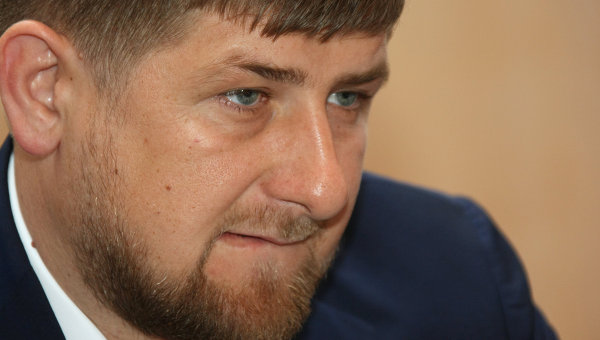
Kadyrov Seeks to Retain Privileged Financial Position for Chechnya in the North Caucasus
Publication: Eurasia Daily Monitor Volume: 9 Issue: 195
By:

Chechens suddenly learned from the Russian media that the authorities in Moscow were preparing to axe the federal program on socio-economic development of the Chechen Republic in 2008–2012. Chechnya was destined to receive about $3 billion through this program (https://regions.ru/news/2429193/). However, Moscow has proposed replacing the special program for Chechnya’s development with regular subsidies from the federal budget totaling about $350 million. The Chechen authorities evidently did not expect such a drastic reduction in financial aid (www.profi-forex.org/news/entry1008140375.html). Chechnya has existed outside the general Russian subsidies system for the past 20 years, and such a drastic cut in funds will make it quite difficult for the local authorities, who were gearing up to receive the $3 billion. One would think that both Grozny and Moscow should be happy about Chechnya being treated like the other North Caucasus republics. Chechen authorities, however, are not excited about this change.
What came as a surprise to ordinary residents of Chechnya did not come as a surprise to the authorities in Grozny, who had tried to prevent this decision since the start of 2012. At the end of May 2012, the Chechen government asked the Russian Ministry for Regional Development to prolong the program of special financing until 2017. The program would then be called Socio-Economic Development of the Chechen Republic in 2013–2017 (www.biznes-portal.com/New.aspx?newid=35264). Officials in the North Caucasus Federal District base their decision “to stop feeding Chechnya” on the fact that such a system of financing was aimed at rebuilding the republic (roads, airports, pipelines, electric plants, etc.), but that it was now decided to finance Chechnya at the same level as the other North Caucasus republics. “Chechnya’s budget is now unbalanced since credits taken earlier have not been paid,” a source in the North Caucasus Federal District told the newspaper Izvestia (https://polit.ru:8021/news/2012/10/15/chechen/).
Hence, it appears that the initiative comes from the administration of Moscow’s envoy to the North Caucasus, Alexander Khloponin, who is competing with Ramzan Kadyrov for influence in the Kremlin. Khloponin has failed to turn the heads of the republics into his subordinates by establishing his residence in Pyatigorsk as an intermediary power actor between Moscow and the North Caucasian republics. Now Moscow’s envoy is trying to use financial instruments to influence the republican leaderships. Tense relations between Khloponin and Kadyrov have been highlighted in the Russian media repeatedly (www.newsland.ru/news/detail/id/480476/). Khloponin’s wish to subjugate the leaders of the North Caucasian republics is understandable. In order to defeat Kadyrov, Khloponin might suggest Moscow cut funds earmarked for Chechnya. However, despite the large reconstruction efforts, there are still very few functioning industries in the republic, which makes Chechnya one of the worst territories in Russia in terms of employment. According to Regional Development Minister Maksim Topilin, Chechnya had the highest unemployment rate in Russian in 2012—31.9 percent (https://news.mail.ru/inregions/caucasus/20/politics/9418876/).
Against the backdrop of this high unemployment rate, Moscow reproaches Grozny for indulging in excessive luxuries. While all major infrastructure objects, such as the airport, railway station, federal and local government buildings, hospitals, schools and the like have been restored, the republican budget is burdened by debt (www.newsland.ru/news/detail/id/1055857/). Moscow angrily observes how Chechen officials spend the money they receive from Russia and sometimes reacts absurdly: for instance, the Russian Ministry of Finance proposes that Chechnya, still strewn with landmines, should be de-mined by the Chechens themselves, meaning that the Chechens themselves pay for de-mining their republic (https://www.biznes-portal.com/New.aspx?newid=35264). Russia’s finance ministry considers that Chechnya has a high tax revenue collection rate and therefore should de-mine its territory with its own budgetary resources plus the funds that come from farmers and landowners. The Chechen authorities respond that they have no surplus money, while agricultural businesses are not profitable. Thus, Grozny and Moscow are in a constant struggle for funds in which President Vladimir Putin has the final word.
Given all of this, the decision to cut Chechnya’s financing and jeopardize another construction mega-project in Grozny looks utterly brazen. Ramzan Kadyrov has presented Grozny-City-2, a planned new multipurpose district, to the republic’s residents. It will include a 300-meter tall building resembling a traditional Chechen tower, a 65-story apartment block, a cinema, office buildings, a hotel, fountains, swimming pools, restaurants, etc. Construction is to start very soon, and the district should be ready by 2016 (www.specletter.com/news/2012-10-19/60838.html). The original Grozny-City has been built and is partially functioning (www.youtube.com/watch?v=hWiuCvxyU4g). It includes three skyscrapers—one with 45 floors and two with 30 floors. There are also two 18-story houses, a 5-star hotel-skyscraper, a business center with a helipad and a two-story underground parking lot. Grozny-City occupies 4.5 hectares (www.vesti.ru/doc.html?id=591347). Officials in Grozny claim that Grozny-City was built using sponsors’ funds, without any money from the budget.
It is most likely that Moscow is preparing Russian public opinion for a reduction in state financing for Chechnya. However, this decision can only be made by Vladimir Putin and he is more likely to continue financing Chechnya. In either case, the risk of galvanizing the rebels in the republic remains high.




